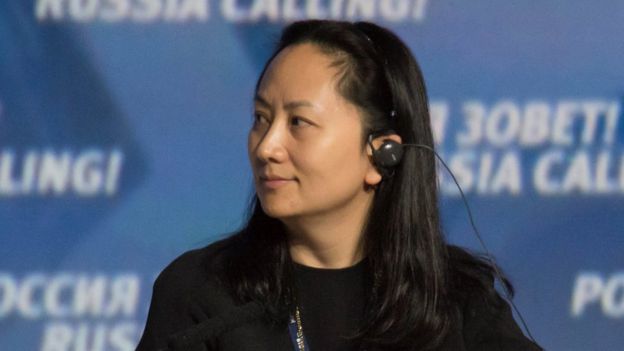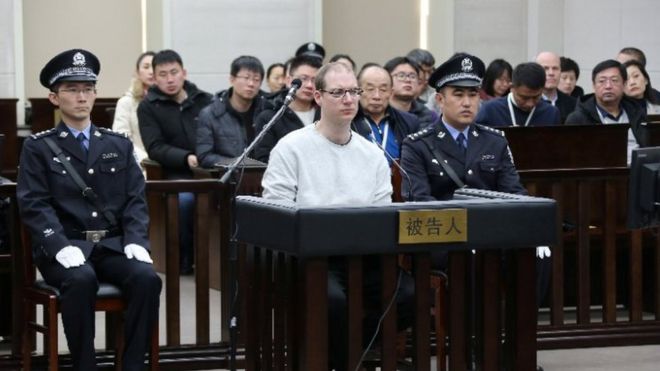China's Ultimatum
"Sending the case back for retrial gives China the opportunity to threaten death and to drag out that threat for as long as necessary."
"[If that's its intention] China has moved from merely detaining Canadians as hostages to actually threatening -- subtly, to be sure -- to kill a Canadian who would otherwise not have been executed if it does not get what it wants."
Donald Clarke, professor, expert on Chinese legal system, George Washington University
"Unless there is some dramatic turn of events, this is marching toward execution in the not-too-distant future."
"This is the most severe sentence allowed under Chinese law. It is death, with execution [after] crossing the T's and dotting the I's."
Margaret Lewis, law professor, Chinese legal system expert, Seton Hall University, New Jersey
"I think people around the world are horrified by this case because it’s such an incredibly crass, politicized and really grotesque response to a diplomatic spat."
"It is a profoundly politicized system that we generally believe can’t possibly deliver on fair trial rights or real justice."
Sophie Richardson, China director, Human Rights Watch
 |
Quietly working its way through Chinese courts for years, the case against Robert Schellenberg, a native of British Columbia, held on charges of being part of a plan to smuggle 220 kilograms of methanphetamines from the port city of Dallian to Australia has suddenly been accelerated. It took four years for his case to be heard, and the outcome was a prison sentence of fifteen years. He immediately set in motion an appeal of his sentence in the hope it might be reduced. In so doing suddenly bringing attention to the fact that China had a Canadian accused of a criminal offence so grave it warranted a death sentence.
Mr. Schellenberg was aghast at his 15-year sentence for a crime he claims he was never involved in. Reason, he felt, would prevail, and his harsh sentence reduced considerably, on appeal. But fate had other plans, landing him squarely in a controversial diplomatic row between Canada and China when Huawei's chief financial officer was arrested in Vancouver for extradition to the United States on a warrant for her apprehension. She is now out on bail, awaiting a final decision on extradition, but two other Canadians doing business in China have been arrested, accused of threats to China's national security.
Unlike Meng Wanzhou's December arrest in Canada where she was handled with kid gloves, allowed a lawyer, given bail and is living in one of her luxury homes in Vancouver, the two Canadian businessmen will remain incarcerated under conditions described as typical of Chinese psychological and emotional deprivation torture. Mr. Schellenberg will not be as fortunate. A Chinese court set aside his appeal and ordered a retrial. A one-day retrial was followed an hour later by a guilty verdict and death sentence. This is China playing furious hardball.
 |
| Meng Wanzhou is the daughter of Huawei's founder Reuters |
China is among a handful of countries for whom drug trafficking merits execution. And the Communist Party dictatorship sees fit to put to death more offenders of Chinese law than any other country with similar laws but lacking its immense population base. An estimated 20 foreigners have been given the death penalty for drug trafficking, and executed. The irony is that Canada finds itself in a really hard place, with its neighbour and largest trading partner sharing most of its own social and political and legal values on one hand, and the world's most populous nation with its own rules of law and politics unlike those of any democracy on the other.
It is, however, a trading giant surpassing even the United States in the scope of its business ties and trade potential for any country that signs a free trade deal with it. Which is exactly what the Liberal government of Canada has been attempting to do for the past few years, bedazzled by the economic prospects with future trade ties and prepared to overlook human rights violations as an inconvenience to achieving an end. It is now another type of end that beckons a Canadian citizen as a furious China accuses Canada of illegal apprehension of a Chinese citizen.
Of Mr. Schellenberg, Justice Neill Brown noted in 2011 in Chilliwack, British Columbia, as he sentenced him to two years in prison: "He is either going to cure himself of his addiction and reform himself and turn off the path that he has been on or he is not. I should caution you. Do not ever underestimate the seriousness of this kind of an offence." The offence? drug trafficking and impaired-driving convictions from 2003 to 2012. It appears he learned nothing, made no effort to change his values and his addiction, and now faces grim consequences.
"The Canadian government really needs to issue advice to its citizens, not for any possible danger in travelling to China, but to warn them against involving in such grave crime as drug trafficking,"
"[Prime Minister Trudeau should] respect the rule of law, respect China’s judicial sovereignty, correct mistakes and stop making irresponsible remarks [and release Meng Wangzou]."
"[China] remains open to and welcomes people from all countries, including from Canada [as long as they obey the law]. The facts have proven that China is a safe place."
Hua Chunying, spokesperson, Chinese Foreign Ministry

Labels: Canada, China, Death Penalty, Drugs, Huawei, Meng, Schellenberg
0 Comments:
Post a Comment
<< Home